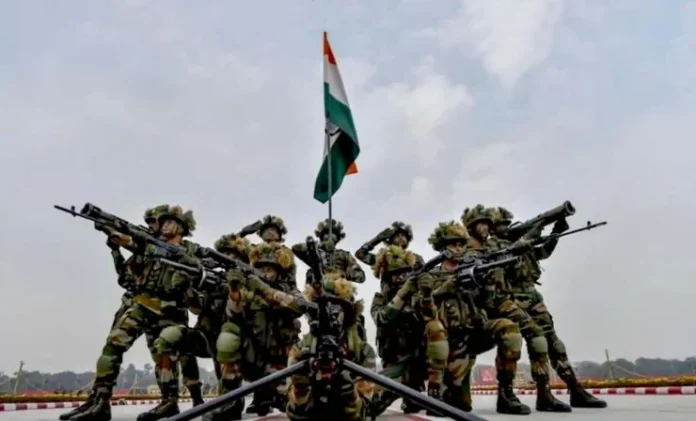New Delhi: With threats along the Western and Northern borders of India continuing to pose serious threat to national security though terrorist threat from Pakistan has receded, the threat from China has grown dramatically.
President Xi Jinping’s refusal to even attend the Delhi G20 Summit underlines the problem. While India’s security challenges are known, what is less understood is the concerted effort by the Narendra Modi government to reform the Indian military to meet the challenges. These reforms have only just begun but their effectiveness will depend on current efforts and the priorities of the government after the general election. Nonetheless, they point to the momentous changes currently underway in the Indian military.
One set of reforms has to do with India’s strategic reorientation. Following the Galwan Valley clashes in 2020, the Indian military has accelerated the process of rebalancing away from Pakistan and towards the threat from China. This has involved relocation of forces, and reorientation of units through fresh tasking with the Indian Navy and Air Force also bolstering their force postures through new acquisitions, deployments, and doctrines. Most consequentially, over the last decade, India has grown closer to the US and its partners in the security arena. This includes closer security ties with the US and bilateral security partnerships with several Indo-Pacific countries.
This has not been a smooth process. But gloomy headlines about the trials and tribulations of these relationships mask a larger trend. India now has bilateral logistics agreements with many countries that have interests in the Indo-Pacific including the US, Japan, Australia, France, South Korea, and Singapore. This would have been unimaginable a decade ago. The Indo-US logistics agreement, LEMOA, took a decade to negotiate. However once LEMOA was approved, agreements with other countries came in rapid succession and without much controversy. Such agreements allow Indian forces access to bases in other countries in the Indo-Pacific, and vice versa.
For a country that was vehemently opposed to foreign military presence for many decades, this is a revolutionary change. These bilateral agreements are also underwritten by security cooperation with many partners in the Indo-Pacific. This includes Quad but also with France, Japan, Australia, Britain, and Italy. This network of partnerships is focused on enhancing Indian and regional military capabilities to counter possible Chinese belligerence in the Indo-Pacific.
The Modi administration has institutionalised the Chief of Defence Staff (CDS) position, established the department of military affairs (DMA) and made a concerted effort to promote jointness within the military, including ambitions to establish joint theatre commands. Many of these reforms were originally suggested by the Group of Ministers on National Security in the aftermath of the Kargil War but have been hanging fire due to a variety of bureaucratic and inter-services disputes.
At their core, the reforms reimagine the relationship between the defence ministry and the military and foster greater inter-services collaboration. The reforms promise to obviate many of the structural weaknesses in India’s civil-military relations and augment other elements of its military power. However, the prolonged delay in creating even one joint theatre command is indicative of continuing bureaucratic resistance.




